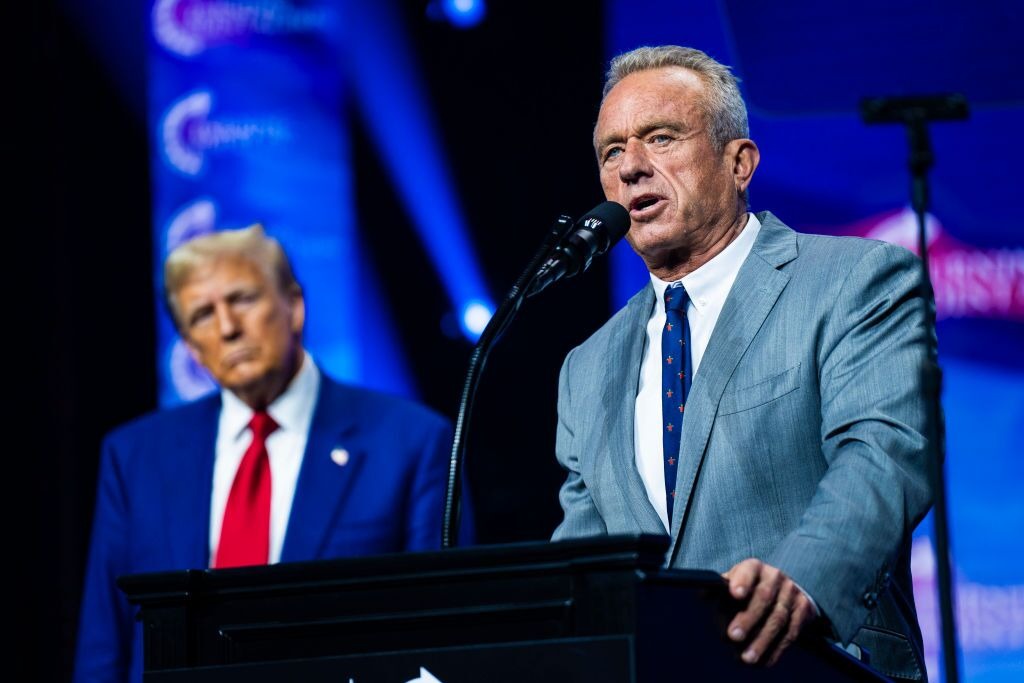
Health and Human Services Secretary RFK Jr. is defending a bold, controversial move: cutting nearly a quarter of the department’s workforce. The stated aim? Efficiency—not austerity.
“This will be a painful period for HHS,” RFK Jr. said in a video shared on X. That pain includes 10,000 immediate job cuts, with another 10,000 employees encouraged to leave through buyouts, early retirements, or severance packages.
Still, RFK Jr.. Insists the core of HHS remains intact.
“We’re not cutting front-line workers, we’re cutting administrators, and we’re consolidating the agency to make it more efficient,” he said on NewsNation’s “Cuomo”.
It’s part of a broader effort led by the Department of Government Efficiency (DOGE), launched under President Trump and supported by tech executive Elon Musk, to overhaul sprawling federal agencies.
At the heart of Kennedy’s argument is a focus on redundancies.
“We have over 100 comms departments. You have 40 procurement departments. We have dozens of IT departments, dozens of HR departments, none of them talk to each other,” he told Chris Cuomo.
The plan, according to RFK Jr., is not to shrink public health—it’s to rewire it.
“We’re streamlining the agencies. We’re going to make it work for public health, make it work for the American people,” he said.
But not all cuts are surgical. In the wave of layoffs, several programs were terminated without clear transition plans. Among them is the CDC’s Childhood Lead Poisoning Prevention program, which monitored exposure and provided support for local health departments.
RFK Jr. admitted that some of those reductions were mistakes.
“In the course of that, there were a number of instances where studies that should have not been cut were cut, and we’ve reinstated them. Personnel that should not have been cut were cut — we’re reinstating them, and that was always the plan,” he said.
He suggested that the lead monitoring team might be among those returning.
“There were some programs that were cut that are being reinstated, and I believe that that’s one,” RFK Jr. said.
Yet, an official statement from HHS painted a different picture.
“The personnel for that current division, of how it exists now, are not being reinstated,” the spokesperson said. “The work will continue elsewhere at HHS. We are consolidating duplicate programs into one place.”
That lack of clarity has been frustrating for public health leaders.
“If our program is reinstated, that is fantastic news. We need this for our nation. We need this for our children across the country,” said Dr. Erik Svendsen, who led the CDC’s lead poisoning division before it was dissolved.
“Without us, there is no other unit at the federal level that is here to support [local health departments] in doing what they need to do.”
Milwaukee was among the cities counting on that support. Local officials had planned to work directly with the CDC team to investigate lead exposure found in multiple public schools. That assistance is now in limbo.
“I can tell you that that has real-world implications for here in Milwaukee as we respond to an ongoing lead crisis in our schools, and it’s difficult to comprehend,” said Mike Totoraitis, the city’s health commissioner.
He added he’s “cautiously optimistic” the team will return, but broader concerns remain.
“This is just one issue area that affects the health of the U.S. residents here, not just lead,” Totoraitis said. “There’s plenty of other sections within the CDC that were eliminated that we’re still trying to sift through and understand how that’s going to impact the work here on the ground.”
Former HHS Secretary Kathleen Sebelius sees danger in the long-term implications.
“I’m worried on a lot of fronts,” she said at The Hill’s “Health Next Summit.” “The kinds of cuts that were just announced are devastating and will set science back and set research back,” she added.
Even RFK Jr. has acknowledged the risk of error baked into the process.
“The part of that, DOGE — we talked about this from the beginning — is we’re going to do 80% cuts but 20% of those are going to have to be reinstalled because we’ll make mistakes,” he said.
“And one of the things that President Trump has said is that if we make mistakes, we’re going to admit it and we’re going to remedy it, and that’s one of the mistakes,” RFK Jr. added, referring to the lead monitoring division.
For now, local and federal agencies are waiting for clarity—and watching closely to see if these reinstatements are the start of a course correction or a band-aid on deeper wounds.
Click here to check out another amazing related News.
Share this article: